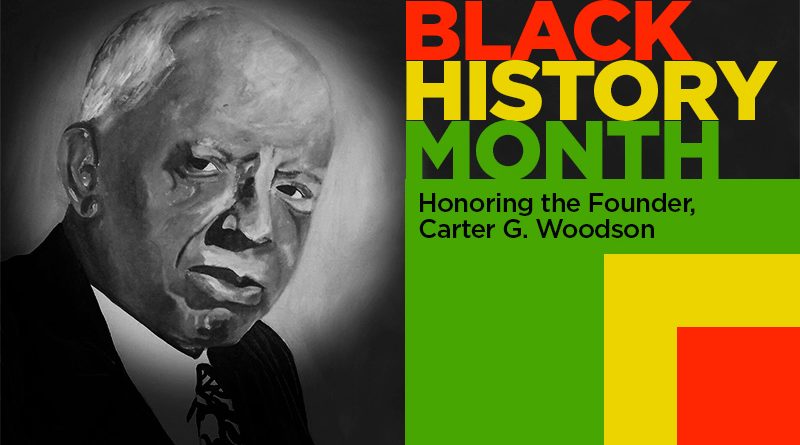Spotlight: Carter G. Woodson, the Father of Black History
February is the time to recognize the integral role that African Americans play in the history of this country. In recognition of this, a spotlight shines on Dr. Carter G. Woodson, also known as the “Father of Black History.” This remarkable individual was born in Virginia, in 1875, to former slaves. Against all odds, he became a learned scholar, a renowned author, and a staunch representative of the Civil Rights Movement. A true visionary, he created what would later grow into a month-long observance to honor Black History.
Dr. Woodson dedicated his life to documenting and promoting the achievements and contributions of African Americans throughout history. In addition, he sought to combat racial prejudice and discrimination through education and awareness. In 1926, he founded Negro History Week, which later evolved into Black History Month. He recognized the importance of making black history accessible to every community. To honor Dr. Woodson, GrantWatch would like to direct readers to a select list of grants, found among the over 1800 grants BIPOC search category.
Who was Carter G. Woodson?
Carter G. Woodson was born in 1875 in New Canton, Virginia, to formerly enslaved parents. Growing up in a segregated society, Woodson faced numerous challenges accessing education. His family was very poor. However, his mother could read, having been taught by her former mistress. This was uncommon for the time. His father was illiterate. Despite this, he escaped slavery during the Civil War and joined the Union Army as a scout. It’s easy to see where Woodson got his intellect, strength, and determination.
It was these very character traits that led him to pursue learning despite the mountainous obstacles in his path. He worked as a miner and a sharecropper to support himself while he furthered his studies. There were stops and starts and it took him time, but he achieved his goals. Eventually, he earned his high school diploma and went on to attend Berea College in Kentucky. He followed that up with the University of Chicago, where he earned his bachelor’s and master’s degrees. Woodson’s early experiences of racial inequality and his perseverance in overcoming them would later shape his lifelong dedication to African American history and education.
A Short List of His Notable Achievements
- Received a doctorate from Harvard University in 1912. He was the 2nd African American to earn a Ph.D. from the institution. The first was W.E.B. Du Bois.
- Founded what is now the Association for the Study of African American Life and History in 1915.
- Published “The Journal of Negro History” in 1916, providing a platform for scholarly research on African American history.
- Wrote numerous influential books, including “The Mis-Education of the Negro” (1933) and “The Negro in Our History” (1922), which became seminal texts in African American studies.
- Established Negro History Week in 1926, which later evolved into Black History Month.
- Served as Dean of the College of Liberal Arts and Head of the Graduate Faculty at Howard University.
- Advocated for the inclusion of African American history in school curricula and textbooks.
- Fought against racial prejudice and discrimination through education and awareness.
- Conducted extensive research on African American history, culture, and contributions.
- Pioneered the celebration and recognition of Black history in the United States, leaving a lasting legacy of scholarship and activism.
To conclude, Dr. Woodson’s legacy continues to inspire generations to celebrate and honor the rich heritage of African Americans every February, fostering greater understanding and appreciation of their significant impact on the world.
Grants, In-Kind Donations, and Contracts to Celebrate the Father of Black History
- To start, grants of up to $15,000 to Black or Latinx-led nonprofit organizations in eligible locations for capacity-building efforts.
- Next, in-kind support and grants of $25,000 to Black-owned small businesses to help companies expand and thrive.
- In addition, contracts for services to community-based nonprofits, schools, businesses, and individuals. Funding is for workforce expansion efforts in the clean energy sector.
- Grants of up to $10,000 to nonprofit organizations, agencies, churches, and Tribes for organizational capacity-building activities.
- Lastly, grants to nonprofit organizations that primarily serve Black populations for programs to improve financial literacy in eligible regions.
About GrantWatch
With close to 8,000 grants currently available, GrantWatch.com is the leading grant listing directory. Upgrade to a MemberPlus+ subscription to view the full grant details, including eligibility criteria and application information. For more information, you can also visit the GrantWatch FAQ page. Finally, to see the great value of all 20 of the top GrantWatch features, click here.

